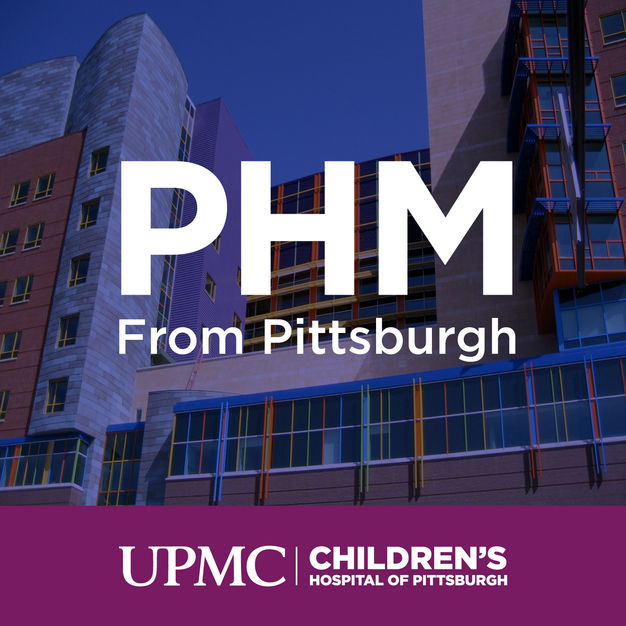
PHM from Pittsburgh
Dr. Tony Tarchichi
Welcome to the first in a series of podcasts on pediatric hospital medicine. This series was created to keep the busy physician of today informed and up to date on some of the most important diagnoses and issues we face every day in the care of hospitalized children.
- 28 minutes 51 secondsJournal Club Series - Episode 3b - Types of variables & Distribution of data
Title: Episode 3b- Types of variables & Distribution of data
Target Audience
This activity is directed to physicians who take care of hospitalized children, medical students, nurse practitioners, and physician assistants working in the emergency room, intensive care unit, or hospital wards.
Objectives:
Upon completion of this activity, participants should be able to:
- 1. Review the types of variables (eg, continuous, ordinal, nominal).
- 2. Review the distribution of data (eg, mean, standard deviation, skewness).
- 3. Review how the types of variables and the distribution of data interact in research.
Course Directors:
Tony R. Tarchichi MD — Associate Professor, Department of Pediatrics, Children's Hospital of Pittsburgh of the University of Pittsburgh Medical Center (UPMC.) Paul C. Gaffney Division of Pediatric Hospital Medicine.
No relationships with industry relevant to the content of this educational activity have been disclosed.
Philana Lin M.D. MSc - University of Pittsburgh School of Medicine - Associate Professor in the Department of Pediatrics - Pediatric Infectious Disease Division
Dr. Lin receives grant/research support from Pfizer (funds investigator initiated seroprevalance study on invasive pneumococcal infection), and NIH (Investigator initiated research on tuberculosis).
Conflict of Interest Disclosure:
No other planners, members of the planning committee, speakers, presenters, authors, content reviewers and/or anyone else in a position to control the content of this education activity have relevant financial relationships to disclose.
Accreditation Statement:
In support of improving patient care, the University of Pittsburgh is jointly accredited by the Accreditation Council for Continuing Medical Education (ACCME), the Accreditation Council for Pharmacy Education (ACPE), and the American Nurses Credentialing Center (ANCC), to provide continuing education for the healthcare team.
The University of Pittsburgh School of Medicine designates this enduring material activity for a maximum of 0.5 AMA PRA Category 1 CreditsTM. Physicians should only claim credit commensurate with the extent of their participation in the activity.
Other health care professionals will receive a certificate of attendance confirming the number of contact hours commensurate with the extent of participation in this activity.
Disclaimer Statement:
The information presented at this activity represents the views and opinions of the individual presenters, and does not constitute the opinion or endorsement of, or promotion by, the UPMC Center for Continuing Education in the Health Sciences, UPMC / University of Pittsburgh Medical Center or Affiliates and University of Pittsburgh School of Medicine. Reasonable efforts have been taken intending for educational subject matter to be presented in a balanced, unbiased fashion and in compliance with regulatory requirements. However, each program attendee must always use his/her own personal and professional judgment when considering further application of this information, particularly as it may relate to patient diagnostic or treatment decisions including, without limitation, FDA-approved uses and any off-label uses.
Released 1/23/2025, Expires 1/23/2028
The direct link to the course is provided below:
23 January 2025, 8:00 pm - 25 minutes 57 secondsJournal Club Series - Episode 3a - Measurements (ex: reliability and validity)
Title: Episode 3a - Measurements (ex: reliability and validity)
Target Audience
This activity is directed to physicians who take care of hospitalized children, medical students, nurse practitioners, and physician assistants working in the emergency room, intensive care unit, or hospital wards.
Objectives:
Upon completion of this activity, participants should be able to:
- 1. Review measurements in a study.
- 2. Review validity in research.
- 3. Review reliability in research.
Course Directors:
Tony R. Tarchichi MD — Associate Professor, Department of Pediatrics, Children's Hospital of Pittsburgh of the University of Pittsburgh Medical Center (UPMC.) Paul C. Gaffney Division of Pediatric Hospital Medicine.
No relationships with industry relevant to the content of this educational activity have been disclosed.
Philana Lin M.D. MSc - University of Pittsburgh School of Medicine - Associate Professor in the Department of Pediatrics - Pediatric Infectious Disease Division
Dr. Lin receives grant/research support from Pfizer (funds investigator initiated seroprevalance study on invasive pneumococcal infection), and NIH (Investigator initiated research on tuberculosis).
Conflict of Interest Disclosure:
No other planners, members of the planning committee, speakers, presenters, authors, content reviewers and/or anyone else in a position to control the content of this education activity have relevant financial relationships to disclose.
Accreditation Statement:
In support of improving patient care, the University of Pittsburgh is jointly accredited by the Accreditation Council for Continuing Medical Education (ACCME), the Accreditation Council for Pharmacy Education (ACPE), and the American Nurses Credentialing Center (ANCC), to provide continuing education for the healthcare team.
The University of Pittsburgh School of Medicine designates this enduring material activity for a maximum of 0.5 AMA PRA Category 1 CreditsTM. Physicians should only claim credit commensurate with the extent of their participation in the activity.
Other health care professionals will receive a certificate of attendance confirming the number of contact hours commensurate with the extent of participation in this activity.
Disclaimer Statement:
The information presented at this activity represents the views and opinions of the individual presenters, and does not constitute the opinion or endorsement of, or promotion by, the UPMC Center for Continuing Education in the Health Sciences, UPMC / University of Pittsburgh Medical Center or Affiliates and University of Pittsburgh School of Medicine. Reasonable efforts have been taken intending for educational subject matter to be presented in a balanced, unbiased fashion and in compliance with regulatory requirements. However, each program attendee must always use his/her own personal and professional judgment when considering further application of this information, particularly as it may relate to patient diagnostic or treatment decisions including, without limitation, FDA-approved uses and any off-label uses.
Released 1/23/2025, Expires 1/23/2028
The direct link to the course is provided below:
COMING SOON
23 January 2025, 7:54 pm - 30 minutes 30 secondsJournal Club Series- Episode 2 - Study Design, Performance, Analysis and Generalizability
Title: Episode 2- Study Design, Performance, Analysis and Generalizability
Target Audience
This activity is directed to physicians who take care of hospitalized children, medical students, nurse practitioners, and physician assistants working in the emergency room, intensive care unit, or hospital wards.
Objectives:
Upon completion of this activity, participants should be able to:
- Review Study design.
- Review Performance and analysis.
- Review generalizability vs internal validity.
Course Directors:
Tony R. Tarchichi MD — Associate Professor, Department of Pediatrics, Children's Hospital of Pittsburgh of the University of Pittsburgh Medical Center (UPMC.) Paul C. Gaffney Division of Pediatric Hospital Medicine.
No relationships with industry relevant to the content of this educational activity have been disclosed.
Jenna Carlson Ph.D. - University of Pittsburgh- Assistant Professor of Human Genetics and Biostatistics in school of Public Health
No relationships with industry relevant to the content of this educational activity have been disclosed.
Rebekah Miller MLIS - University of Pittsburgh School of Medicine - Research & Instruction Librarian
No relationships with industry relevant to the content of this educational activity have been disclosed.
Conflict of Interest Disclosure:
No other planners, members of the planning committee, speakers, presenters, authors, content reviewers and/or anyone else in a position to control the content of this education activity have relevant financial relationships to disclose.
Accreditation Statement:
In support of improving patient care, the University of Pittsburgh is jointly accredited by the Accreditation Council for Continuing Medical Education (ACCME), the Accreditation Council for Pharmacy Education (ACPE), and the American Nurses Credentialing Center (ANCC), to provide continuing education for the healthcare team.
The University of Pittsburgh School of Medicine designates this enduring material activity for a maximum of 0.5 AMA PRA Category 1 CreditsTM. Physicians should only claim credit commensurate with the extent of their participation in the activity.
Other health care professionals will receive a certificate of attendance confirming the number of contact hours commensurate with the extent of participation in this activity.
Disclaimer Statement:
The information presented at this activity represents the views and opinions of the individual presenters, and does not constitute the opinion or endorsement of, or promotion by, the UPMC Center for Continuing Education in the Health Sciences, UPMC / University of Pittsburgh Medical Center or Affiliates and University of Pittsburgh School of Medicine. Reasonable efforts have been taken intending for educational subject matter to be presented in a balanced, unbiased fashion and in compliance with regulatory requirements. However, each program attendee must always use his/her own personal and professional judgment when considering further application of this information, particularly as it may relate to patient diagnostic or treatment decisions including, without limitation, FDA-approved uses and any off-label uses.
Released 1/23/2025, Expires 1/23/2028
The direct link to the course is provided below:
23 January 2025, 7:43 pm - 28 minutes 11 secondsJourncal Club Series - Episode 1 - Diagnostic tests (eg, sensitivity and specificity, predictive values, disease prevalence)
Title: Episode 1- Diagnostic tests (eg, sensitivity and specificity, predictive values, disease prevalence)
Target Audience
This activity is directed to physicians who take care of hospitalized children, medical students, nurse practitioners, and physician assistants working in the emergency room, intensive care unit, or hospital wards.
Objectives:
Upon completion of this activity, participants should be able to:
- 1 Review sensitivity and specificity.
- Review predictive values.
- 3 Review disease prevalence vs incidence.
Course Directors:
Tony R. Tarchichi MD — Associate Professor, Department of Pediatrics, Children's Hospital of Pittsburgh of the University of Pittsburgh Medical Center (UPMC.) Paul C. Gaffney Division of Pediatric Hospital Medicine.
No relationships with industry relevant to the content of this educational activity have been disclosed.
Philana Lin M.D., MSc, -- University of Pittsburgh School of Medicine - Associate Professor in the Department of Pediatrics - Pediatric Infectious Disease Division
Dr. Lin receives grant/research support from Pfizer (funds investigator initiated seroprevalance study on invasive pneumococcal infection), and NIH (Investigator initiated research on tuberculosis).
Conflict of Interest Disclosure:
No other planners, members of the planning committee, speakers, presenters, authors, content reviewers and/or anyone else in a position to control the content of this education activity have relevant financial relationships to disclose.
Accreditation Statement:
In support of improving patient care, the University of Pittsburgh is jointly accredited by the Accreditation Council for Continuing Medical Education (ACCME), the Accreditation Council for Pharmacy Education (ACPE), and the American Nurses Credentialing Center (ANCC), to provide continuing education for the healthcare team.
The University of Pittsburgh School of Medicine designates this enduring material activity for a maximum of 0.5 AMA PRA Category 1 CreditsTM. Physicians should only claim credit commensurate with the extent of their participation in the activity.
Other health care professionals will receive a certificate of attendance confirming the number of contact hours commensurate with the extent of participation in this activity.
Disclaimer Statement:
The information presented at this activity represents the views and opinions of the individual presenters, and does not constitute the opinion or endorsement of, or promotion by, the UPMC Center for Continuing Education in the Health Sciences, UPMC / University of Pittsburgh Medical Center or Affiliates and University of Pittsburgh School of Medicine. Reasonable efforts have been taken intending for educational subject matter to be presented in a balanced, unbiased fashion and in compliance with regulatory requirements. However, each program attendee must always use his/her own personal and professional judgment when considering further application of this information, particularly as it may relate to patient diagnostic or treatment decisions including, without limitation, FDA-approved uses and any off-label uses.
Released 1/23/2025, Expires 1/23/2028
The direct link to the course is provided below:
23 January 2025, 7:38 pm - 8 minutes 39 secondsJournal Club Series-Introductory Episode
This is the introduction to our journal club series. The next 14 episodes after this will discuss important and relevant topics in biostatistics, helping you understand and critically evaluate scholarly activity. To create these episodes we partnered with our good friends at University of Texas at Austin, Dell Medical School. This introductory episode is just me talking so there’s no CME attached to it. Our apologies for that. We hope you enjoy.
23 January 2025, 6:33 pm - 47 minutes 55 secondsAdrenal Insufficiency
Title: Adrenal Insufficiency
Target Audience
This activity is directed to physicians who take care of hospitalized children, medical students, nurse practitioners, and physician assistants working in the emergency room, intensive care unit, or hospital wards.
Objectives:
Upon completion of this activity, participants should be able to:
-
-
-
Review symptoms and pathophysiology of primary vs secondary adrenal insufficiency.
-
Review management of both primary and secondary adrenal insufficiency.
-
Review workup of both primary and secondary adrenal insufficiency and review adrenal crisis.
Course Directors:
-
-
Tony R. Tarchichi MD — Associate Professor, Department of Pediatrics, Children's Hospital of Pittsburgh of the University of Pittsburgh Medical Center (UPMC.) Paul C. Gaffney Division of Pediatric Hospital Medicine.
Selma Witchel MD- Professor Pediatrics, University of Pittsburgh School of Medicine
Maria G. Vogiatzi MD - Professor of Pediatrics, Children's Hospital of Philadelphia, University of Pennsylvania School of Medicine
Alexandra Ahmet MD - Associate Professor of Pediatrics at the University of Ottawa (Canada), Division Chief for pediatric endocrinology at the Children’s Hospital of Eastern Ontario in Ottawa Canada
Conflict of Interest Disclosure:
No other planners, members of the planning committee, speakers, presenters, authors, content reviewers and/or anyone else in a position to control the content of this education activity have relevant financial relationships to disclose.
Accreditation Statement:
In support of improving patient care, the University of Pittsburgh is jointly accredited by the Accreditation Council for Continuing Medical Education (ACCME), the Accreditation Council for Pharmacy Education (ACPE), and the American Nurses Credentialing Center (ANCC), to provide continuing education for the healthcare team.
The University of Pittsburgh School of Medicine designates this enduring material activity for a maximum of 1 AMA PRA Category 1 CreditsTM. Physicians should only claim credit commensurate with the extent of their participation in the activity.
Other health care professionals will receive a certificate of attendance confirming the number of contact hours commensurate with the extent of participation in this activity.
Disclaimer Statement:
The information presented at this activity represents the views and opinions of the individual presenters, and does not constitute the opinion or endorsement of, or promotion by, the UPMC Center for Continuing Education in the Health Sciences, UPMC / University of Pittsburgh Medical Center or Affiliates and University of Pittsburgh School of Medicine. Reasonable efforts have been taken intending for educational subject matter to be presented in a balanced, unbiased fashion and in compliance with regulatory requirements. However, each program attendee must always use his/her own personal and professional judgment when considering further application of this information, particularly as it may relate to patient diagnostic or treatment decisions including, without limitation, FDA-approved uses and any off-label uses.
Released 1/6/2025, Expires 1/6/2028
The direct link to the course is provided below:
https://cme.hs.pitt.edu/ISER/app/learner/loadModule?moduleId=25495&dev=true
6 January 2025, 7:34 pm -
- 45 minutes 51 secondsPhysician Suicide
Title: Physician Suicide
Target Audience
This activity is directed to physicians who take care of hospitalized children, medical students, nurse practitioners, and physician assistants working in the emergency room, intensive care unit, or hospital wards.
Objectives:
Upon completion of this activity, participants should be able to:
-
-
1. Review the epidemiology of Physician Suicide.
2. Review the rates of physician suicide in comparison to general population.
3. Review factors that are specific to increase the risk of physician suicide.
-
Faculty:
Planning Committee:
Allison Williams MD, — Assistant Professor of Pediatrics, Division of Pediatric Hospital Medicine, UPMC Children's Hospital of Pittsburgh
Course Directors:
Tony R. Tarchichi MD — Associate Professor, Department of Pediatrics, Children's Hospital of Pittsburgh of the University of Pittsburgh Medical Center (UPMC.) Paul C. Gaffney Division of Pediatric Hospital Medicine
Dr. Tarchichi has disclosed he was a member of the Advisory Board for meningococcal vaccine in immunocompromised patient for Sanofi Corp
Sidney Zisook MD - Professor, Department of Psychiatry, University of California San Diego.
Conflict of Interest Disclosure:
No other planners, members of the planning committee, speakers, presenters, authors, content reviewers and/or anyone else in a position to control the content of this education activity have relevant financial relationships to disclose.
Accreditation Statement:
In support of improving patient care, the University of Pittsburgh is jointly accredited by the Accreditation Council for Continuing Medical Education (ACCME), the Accreditation Council for Pharmacy Education (ACPE), and the American Nurses Credentialing Center (ANCC), to provide continuing education for the healthcare team.
The University of Pittsburgh School of Medicine designates this enduring material activity for a maximum of 0.75 AMA PRA Category 1 CreditsTM. Physicians should only claim credit commensurate with the extent of their participation in the activity.
Other health care professionals will receive a certificate of attendance confirming the number of contact hours commensurate with the extent of participation in this activity.
Disclaimer Statement:
The information presented at this activity represents the views and opinions of the individual presenters, and does not constitute the opinion or endorsement of, or promotion by, the UPMC Center for Continuing Education in the Health Sciences, UPMC / University of Pittsburgh Medical Center or Affiliates and University of Pittsburgh School of Medicine. Reasonable efforts have been taken intending for educational subject matter to be presented in a balanced, unbiased fashion and in compliance with regulatory requirements. However, each program attendee must always use his/her own personal and professional judgment when considering further application of this information, particularly as it may relate to patient diagnostic or treatment decisions including, without limitation, FDA-approved uses and any off-label uses.
Released 12/19/2024, Expires 12/19/2027
The direct link to the course is provided below:
https://cme.hs.pitt.edu/ISER/app/learner/loadModule?moduleId=25494&dev=true
20 December 2024, 12:30 am -
- 51 minutes 46 secondsAnkyloglossia and Breastfeeding- New Clinical Report Review
This episode was made in partnership with the AAP SOHM Newborn Hospitalist Subcommittee
Title: Ankyloglossia and Breastfeeding- New Clinical Report Review
Target Audience
This activity is directed to physicians who take care of hospitalized children, medical students, nurse practitioners, and physician assistants working in the emergency room, intensive care unit, or hospital wards.
Objectives:
Upon completion of this activity, participants should be able to:
-
-
Review the new clinical report on identification and management of ankyloglossia and its effect on breastfeeding in infants.
-
Review the diagnosis of ankyloglossia.
-
Review breastfeeding physiology.
-
Faculty:
Planning Committee:
Allison Williams MD, — Assistant Professor of Pediatrics, Division of Pediatric Hospital Medicine, UPMC Children's Hospital of Pittsburgh
Course Directors:
Tony R. Tarchichi MD — Associate Professor, Department of Pediatrics, Children's Hospital of Pittsburgh of the University of Pittsburgh Medical Center (UPMC.) Paul C. Gaffney Division of Pediatric Hospital Medicine
Dr. Tarchichi has disclosed he was a member of the Advisory Board for meningococcal vaccine in immunocompromised patient for Sanofi Corp
Jennifer Thomas MD, MPH - Advocate Children's Health, Milwaukee Wisconsin. American Academy of Pediatrics Section on breastfeeding
Conflict of Interest Disclosure:
No other planners, members of the planning committee, speakers, presenters, authors, content reviewers and/or anyone else in a position to control the content of this education activity have relevant financial relationships to disclose.
Accreditation Statement:
In support of improving patient care, the University of Pittsburgh is jointly accredited by the Accreditation Council for Continuing Medical Education (ACCME), the Accreditation Council for Pharmacy Education (ACPE), and the American Nurses Credentialing Center (ANCC), to provide continuing education for the healthcare team.
The University of Pittsburgh School of Medicine designates this enduring material activity for a maximum of 1 AMA PRA Category 1 CreditsTM. Physicians should only claim credit commensurate with the extent of their participation in the activity.
Other health care professionals will receive a certificate of attendance confirming the number of contact hours commensurate with the extent of participation in this activity.
Disclaimer Statement:
The information presented at this activity represents the views and opinions of the individual presenters, and does not constitute the opinion or endorsement of, or promotion by, the UPMC Center for Continuing Education in the Health Sciences, UPMC / University of Pittsburgh Medical Center or Affiliates and University of Pittsburgh School of Medicine. Reasonable efforts have been taken intending for educational subject matter to be presented in a balanced, unbiased fashion and in compliance with regulatory requirements. However, each program attendee must always use his/her own personal and professional judgment when considering further application of this information, particularly as it may relate to patient diagnostic or treatment decisions including, without limitation, FDA-approved uses and any off-label uses.
Released 8/23/2024, Expires 8/23/2027
The direct link to the course is provided below:
Pediatric Hospital Medicine: Akyloglossia and Breastfeeding-course number EM_143697 - Pediatric Hospital Medicine: Ankyloglossia and Breastfeeding - PHM Podcast series
27 August 2024, 6:25 pm -
- 18 minutes 24 secondsWhat I Learned at PHM 2024
This is part of our annual series at the Pediatric Hospital Medicine National Conference where we ask some of the conference attendees to join us to discuss which sessions of the conference they went to and learned. Today we are lucky enough to be joined by Drs. Victoria LeBlanc, Chrissy Hrach, Nancy Chen, Lana Ismail, Maha Kaissi, Tamara Gayle & Patricia Tran. This episode is not associated with CME, we apologize for any inconvienence associated with that.
Quick LinksGet Embed PlayerShare on SocialDownload Audio File2 August 2024, 6:56 pm - 52 minutes 13 secondsPediatric Gastroparesis- Why So Slow?
Title: Pediatric Gastroparesis - Why so slow?
Target Audience
This activity is directed to physicians who take care of hospitalized children, medical students, nurse practitioners, and physician assistants working in the emergency room, intensive care unit, or hospital wards.
Objectives:
Upon completion of this activity, participants should be able to:
-
1. Define Gastroparesis and discuss incidence and prevalence.
2. Discuss the differences between pediatric and adult Gastroparesis etiology and management.
3. Discuss the diagnosis and treatment of Gastroparesis.
Faculty:
Planning Committee:
Allison Williams MD, — Assistant Professor of Pediatrics, Division of Pediatric Hospital Medicine, UPMC Children's Hospital of Pittsburgh
Course Directors:
Tony R. Tarchichi MD — Associate Professor, Department of Pediatrics, Children's Hospital of Pittsburgh of the University of Pittsburgh Medical Center (UPMC.) Paul C. Gaffney Division of Pediatric Hospital Medicine
Dr. Tarchichi has disclosed he was a member of the Advisory Board for meningococcal vaccine in immunocompromised patient for Sanofi Corp
Vibha Sood MD— Associate Professor of Pediatrics, Division of Gastroenterology and Nutrition, UPMC Children's Hospital of Pittsburgh. Director - Motility Center.
Conflict of Interest Disclosure:
No other planners, members of the planning committee, speakers, presenters, authors, content reviewers and/or anyone else in a position to control the content of this education activity have relevant financial relationships to disclose.
Accreditation Statement:
In support of improving patient care, the University of Pittsburgh is jointly accredited by the Accreditation Council for Continuing Medical Education (ACCME), the Accreditation Council for Pharmacy Education (ACPE), and the American Nurses Credentialing Center (ANCC), to provide continuing education for the healthcare team.
The University of Pittsburgh School of Medicine designates this enduring material activity for a maximum of 1 AMA PRA Category 1 CreditsTM. Physicians should only claim credit commensurate with the extent of their participation in the activity.
Other health care professionals will receive a certificate of attendance confirming the number of contact hours commensurate with the extent of participation in this activity.
Disclaimer Statement:
The information presented at this activity represents the views and opinions of the individual presenters, and does not constitute the opinion or endorsement of, or promotion by, the UPMC Center for Continuing Education in the Health Sciences, UPMC / University of Pittsburgh Medical Center or Affiliates and University of Pittsburgh School of Medicine. Reasonable efforts have been taken intending for educational subject matter to be presented in a balanced, unbiased fashion and in compliance with regulatory requirements. However, each program attendee must always use his/her own personal and professional judgment when considering further application of this information, particularly as it may relate to patient diagnostic or treatment decisions including, without limitation, FDA-approved uses and any off-label uses.
Released 6/3/2024, Expires 6/3/2027
The direct link to the course is provided below:
Pediatric Hospital Medicine: Pediatric Gastroparessis - Why So Slow?- PHM Podcast series
https://cme.hs.pitt.edu/ISER/app/learner/loadModule?moduleId=25133&dev=true
11 June 2024, 6:56 pm -
- 1 hour 11 minutesWhat is Paroxysmal Sympathetic Hyperactivity?
Title: What is Paroxysmal Sympathetic Hyperactivity?
Target Audience
This activity is directed to physicians who take care of hospitalized children, medical students, nurse practitioners, and physician assistants working in the emergency room, intensive care unit, or hospital wards.
Objectives:
Upon completion of this activity, participants should be able to:
-
1. Review the name changes that have occurred for Paroxysmal Sympathetic Hyperactivity (PSH).
2. Review the current definition and symptomatology of PSH.
3. Review treatment and management of PSH.
Faculty:
Planning Committee:
Allison Williams MD, — Assistant Professor of Pediatrics, Division of Pediatric Hospital Medicine, UPMC Children's Hospital of Pittsburgh
Course Directors:
Tony R. Tarchichi MD — Associate Professor, Department of Pediatrics, Children's Hospital of Pittsburgh of the University of Pittsburgh Medical Center (UPMC.) Paul C. Gaffney Division of Pediatric Hospital Medicine
Dr. Tarchichi has disclosed he was a member of the Advisory Board for meningococcal vaccine in immunocompromised patient for Sanofi Corp
Scott H. Maurer, MD, FAAHPM— Associate Professor of Pediatrics, Chief Division of Palliative Medicine and Supportive Care, UPMC Children's Hospital of Pittsburgh
Hitoshi Koshiya MD - Post Graduate Year Five Child Neurology Fellow, Children's Hospital of Pittsburgh of the University of Pittsburgh Medical Center (UPMC.).
Conflict of Interest Disclosure:
No other planners, members of the planning committee, speakers, presenters, authors, content reviewers and/or anyone else in a position to control the content of this education activity have relevant financial relationships to disclose.
Accreditation Statement:
In support of improving patient care, the University of Pittsburgh is jointly accredited by the Accreditation Council for Continuing Medical Education (ACCME), the Accreditation Council for Pharmacy Education (ACPE), and the American Nurses Credentialing Center (ANCC), to provide continuing education for the healthcare team.
The University of Pittsburgh School of Medicine designates this enduring material activity for a maximum of 1.25 AMA PRA Category 1 CreditsTM. Physicians should only claim credit commensurate with the extent of their participation in the activity.
Other health care professionals will receive a certificate of attendance confirming the number of contact hours commensurate with the extent of participation in this activity.
Disclaimer Statement:
The information presented at this activity represents the views and opinions of the individual presenters, and does not constitute the opinion or endorsement of, or promotion by, the UPMC Center for Continuing Education in the Health Sciences, UPMC / University of Pittsburgh Medical Center or Affiliates and University of Pittsburgh School of Medicine. Reasonable efforts have been taken intending for educational subject matter to be presented in a balanced, unbiased fashion and in compliance with regulatory requirements. However, each program attendee must always use his/her own personal and professional judgment when considering further application of this information, particularly as it may relate to patient diagnostic or treatment decisions including, without limitation, FDA-approved uses and any off-label uses.
Released 5/23/2024, Expires 5/24/2027
The direct link to the course is provided below:
Pediatric Hospital Medicine: Paroxysmal Sympathetic Hyperactivity - PHM Podcast series
https://cme.hs.pitt.edu/ISER/app/learner/loadModule?moduleId=25153&dev=true
23 May 2024, 7:30 pm -
- More Episodes? Get the App
Your feedback is valuable to us. Should you encounter any bugs, glitches, lack of functionality or other problems, please email us on [email protected] or join Moon.FM Telegram Group where you can talk directly to the dev team who are happy to answer any queries.
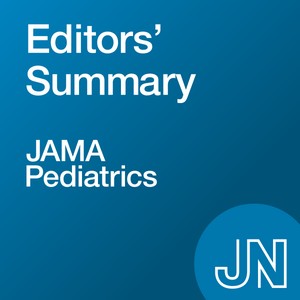 JAMA Pediatrics Editors' Summary
JAMA Pediatrics Editors' Summary
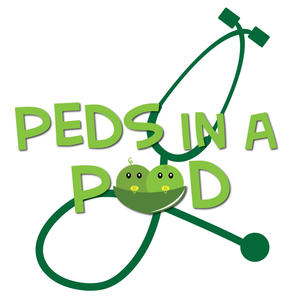 Peds in a Pod: A Pediatric Board Review
Peds in a Pod: A Pediatric Board Review
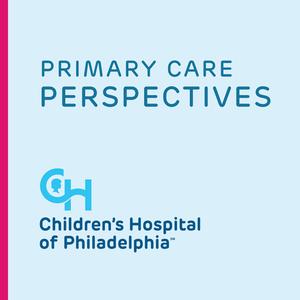 Primary Care Perspectives
Primary Care Perspectives
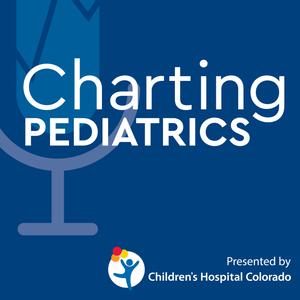 Charting Pediatrics
Charting Pediatrics
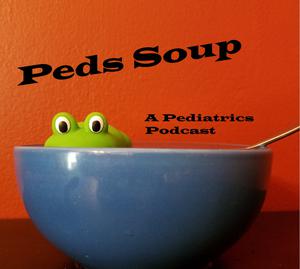 Peds Soup: A Pediatrics Podcast
Peds Soup: A Pediatrics Podcast
 PediaCast CME: Pediatric Podcasts for Providers
PediaCast CME: Pediatric Podcasts for Providers